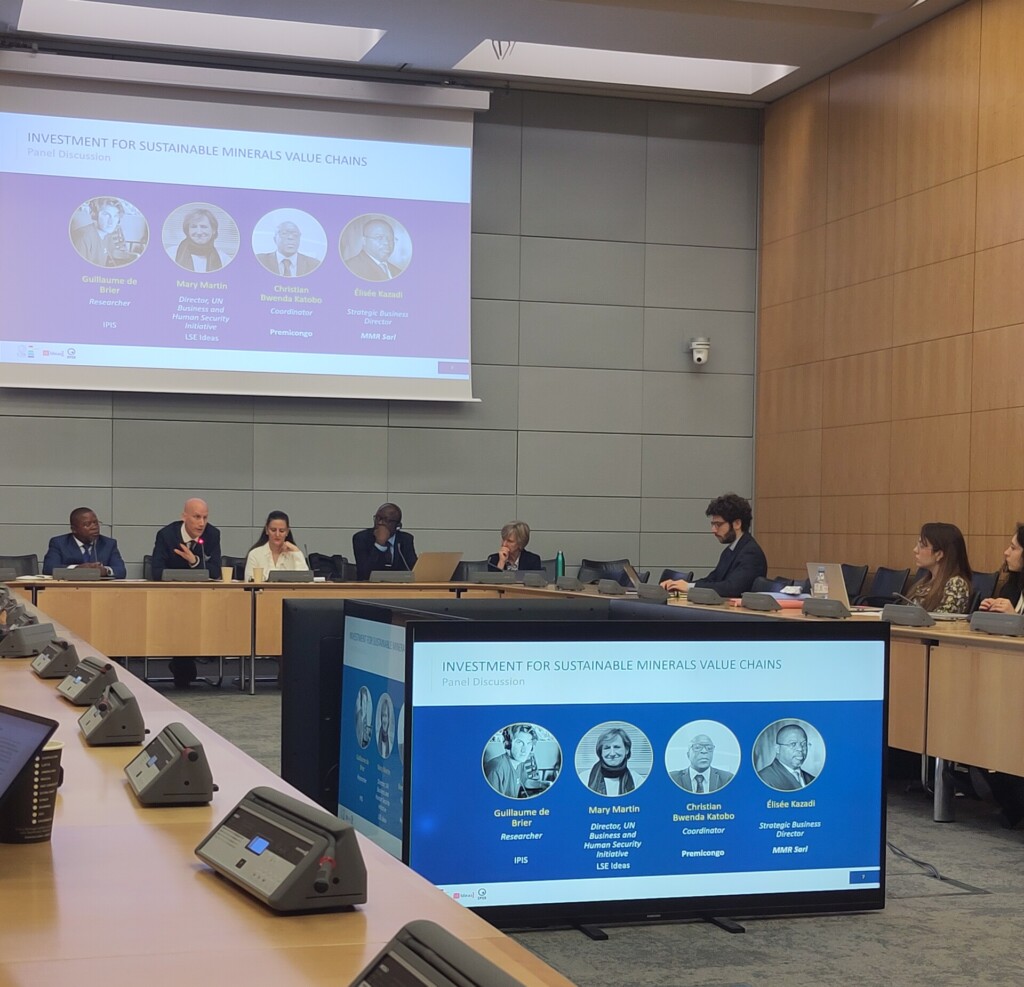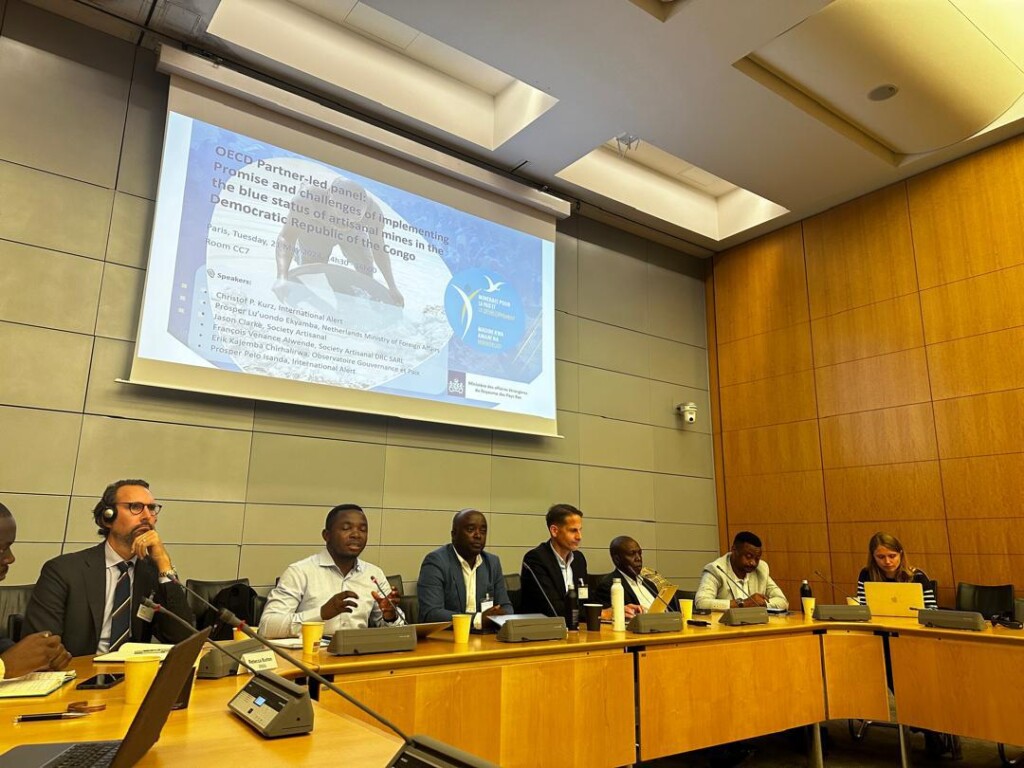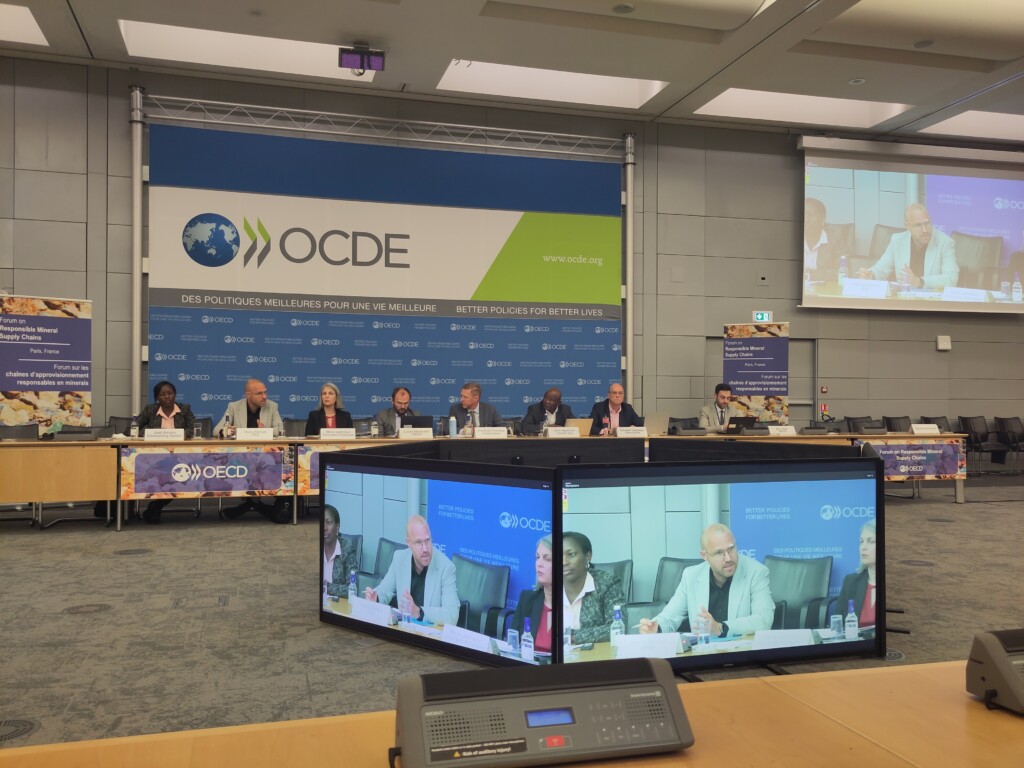Last week, representatives of civil society, industry, and governments gathered at the 2024 OECD Forum on Responsible Mineral Supply Chains in Paris. Members of the IPIS team attended to stress the need for investments in artisanal mining in producer countries, reflected on what strategic mineral partnerships should look like, and underlined the importance of better monitoring the impacts of mining operations and their security arrangements. Here are some of their takeaways from the discussions:
Critical minerals:
While in its early days, the OECD Minerals Forum focused on respect for human rights when sourcing minerals from conflict-affected and high-risk areas, critical raw materials, and the rising mineral demand linked to the energy transition are now also central to the discussions. Although the narrative on critical minerals remains very centered on states’ ability to secure and diversify the supply of minerals for the digital and energy transition, many sessions of the Forum highlighted the human rights and environmental risks of their extraction. The Transition Minerals Tracker and recent work conducted by SOMO on the EU policy on raw materials provided inputs to the conversation.
Calls for investments in artisanal mining and the central role of civil society:
Throughout the week, many actors called for larger investments in producer countries. The private sector emphasized the extraction costs and the financial risks they take to solicit public investment. Officials from producer countries seek investors for processing and refining minerals on their soil to move up the value chain. For IPIS’ researcher Guillaume de Brier, the private sector, and countries willing to diversify their supply chain, should invest in artisanal mining. He encouraged them to consider this sector as a real business case. ASM contributes to local development, household incomes, and local economies more broadly. Hence, it is crucial not to disengage and continue sourcing from ASM.
An example of the private sector investing in artisanal mining in a high-risk context was discussed in a session organized by the Madini project together with gold exporter Society Artisanal. The panel dived into the promises and challenges of implementing the ‘blue mine‘ as a new status for qualifying mines in the DRC and the operationalization of a pilot artisanal gold site in South Kivu province. The Blue status allows a registered mine site to exploit and export minerals while officially awaiting its qualification/validation as a green or yellow mine. They emphasized the potential of empowering private sector actors by putting the private sector back at the center of the due diligence of its supply chain and the essential support to civil society which needs to be involved in natural resource governance and plays a central role in monitoring and solving mining-related risks and incidents.
In a panel on due diligence control points, IMPACT’s Director Joanne Lebert underlined the necessity to leverage local knowledge but also to recognize and fund the risk assessment and data collection that frontline civil society actors conduct. Accurate information, on which due diligence relies, should be shared on a two-way street and this requires trust between mining communities and actors up the supply chain.
Challenges around industrial mines:
IPIS further advocated that engagement with ASM is a prerequisite to obtaining the social license to operate in large-scale mining operations. This was also highlighted in another exchange on the challenging coexistence of LSM and ASM by Solidaridad, EPRM, and the World Gold Council, discussing the inadequacy of traditional strategies to deal with artisanal miners on large-scale mining concessions that focus on law enforcement, often involving violence from security agents, destruction of machinery, fencing, or lengthy administrative procedures.
During a recorded session on preventing conflict with communities around industrial mines, IPIS’ researcher Hans Merket stressed the importance of better monitoring the impacts of mining operations and their security arrangements. Mines are often situated in remote and impoverished areas where communities often do not have the means or capacity to report incidents to the mine owners, authorities, or civil society. This issue is exacerbated when no grievance mechanism is in place or when it is inaccessible. Environmental and social governance (ESG) ratings should be approached with greater caution, as they can lead to the dismissal of legitimate claims that do not align with or pose a risk to the rating.
Strategic partnerships:
To secure a sufficient supply of minerals needed for the energy transition, countries and the EU develop strategic partnerships with producer countries. Although they often do not include many details, these partnerships and their announcement convey strong messages. IPIS advocated that civil society organizations from sourcing and producing countries receive a seat at the negotiation table of the strategic projects and partnerships that the EU intends to sign and fund. The Zimbabwean Environmental Law Association (ZELA) made other key points on what strategic partnerships should be based on. These include:
- Stakeholder engagement. Strategic partnerships must go beyond state-to-state negotiations and include civil society, trade unions, etc.
- Transparency is essential for citizens’ acceptance and is critical for civil society to hold governments accountable.
- Compliance with ESG standards is paramount, regardless of the capacity of the hosting state.
- Enhancement of host nation capacities. This can be through technology transfers but also support to enforce due diligence regulations.
- More specific dispositions regarding the way benefits are shared between the producing and sourcing countries.
Diamonds
A partner session organized by the Kimberley Process Civil Society Coalition and De Beers brought responsible diamond sourcing to the OECD’s agenda. The session underlined that the necessity to break down the silosbetween minerals is increasingly evident, as the diamond trade can greatly benefit from lessons learned in the 3TG (tin, tantalum, tungsten, and gold) sectors. Improvements are required not only in the identification and mitigation of risks along the diamond supply chain but also in transparency on these issues. There is an urgent need for broader thinking across minerals, on how we can more responsibly integrate ASM in the formal trade through scalable initiatives while ensuring fairness in cost-sharing. This should prevent the burden from falling disproportionately on the most vulnerable groups in the supply chain, particularly artisanal miners, as is too often the case today.
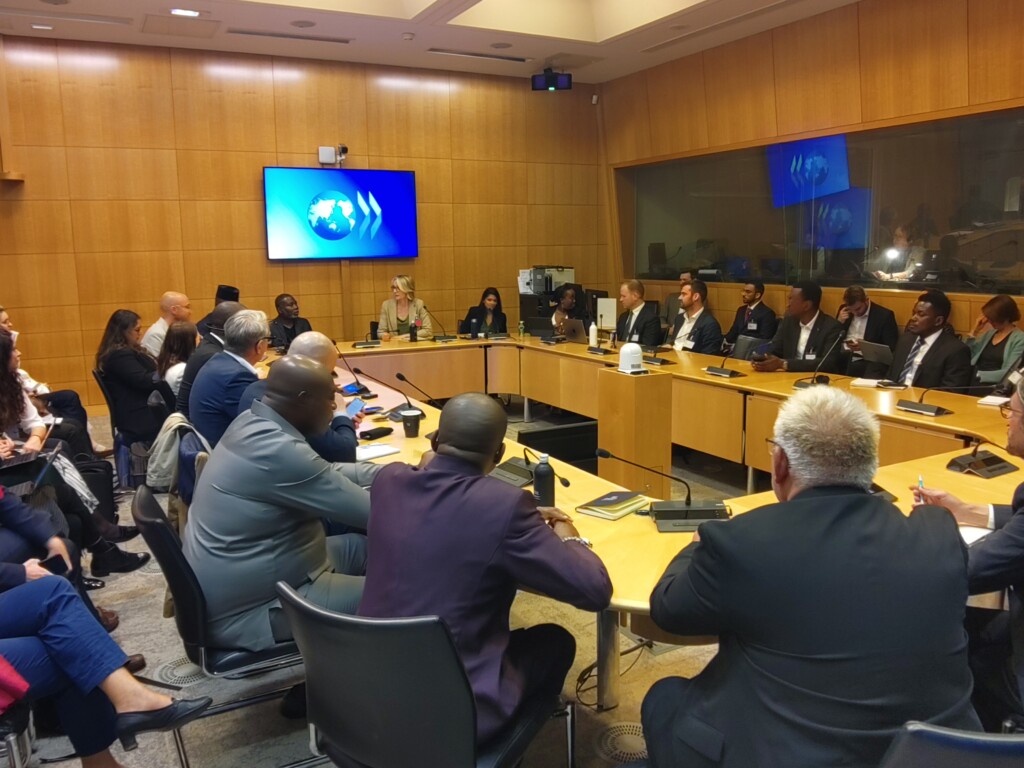
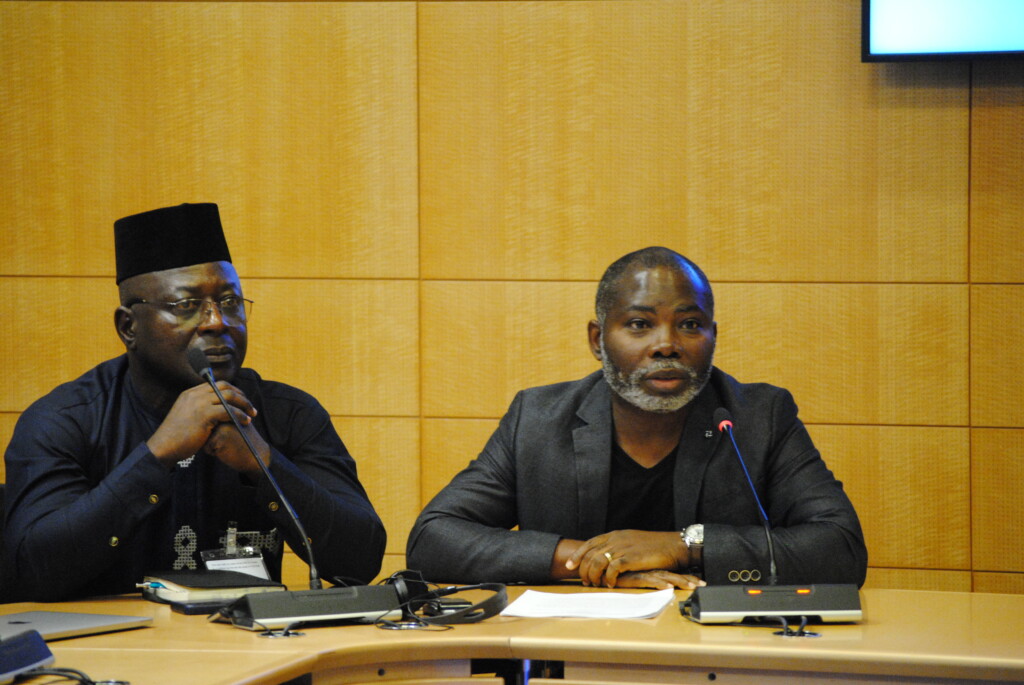
Using remote sensing for due diligence
During BGR’s session on the use of satellite imagery to monitor mining land use and impact, Victor Maus, from the Institute for Ecological Economics, highlighted that due diligence needs systemically produced data that cannot solely be provided by audits. Satellite analyses and remote sensing can, for instance, help identify mining sites and monitor tree-cover losses or mine closures.
Recycling
While recycling is not yet a prominent topic of the OECD Forum, many presentations referred to it as a way to secure and diversify supply chains to reduce our demand or dependency on primary materials. However, an interesting session by the Roundtable on the Responsible Recycling of Metals stressed that the notion of recycled metals needs to be broken down to reflect its diversity. Moreover, it underlined some of the wrong assumptions associated with recycling. These include for instance the perception that recycling of metals produces less C02 emissions than the extraction and production of primary materials, but also that risks are lower in recycling supply chains. The panel underlined that risks are actually numerous, only different from primary materials supply chains. As a result, those risks must be acknowledged and due diligence needs to be adapted to recycled materials, not only copy-pasted from processes applied to primary materials.

